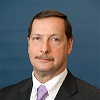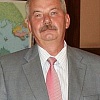Project: Strategic Stability and Reducing the Risk of Nuclear Threat
Aims of the project — evaluation of risks associated with the nuclear threat and forecasting the changes in strategic stability; elaboration of recommendations for reducing nuclear threats by the international expert group.
Publications:
- Working paper “Strategic stability and nuclear threat risks”
Partners:
Analytics (50)
The best outcome would be a substantive exchange of views with the US on the “Post-INF moratorium” and a parallel unilateral restraint from deploying intermediate-range…
ShortRestoring the arms control foundation will make it possible to expand the dialogue to other types of weapons and military technologies, gradually involve third nuclear powers in…
ShortAnalytics
Interview (5)
We will stay alive if we avoid nuclear war. Until now, this has been possible, first of all thanks to arms control
ShortA radical reduction in strategic weapons is already impossible without imposing any restrictions on China
ShortInterview
Comments (4)
The New START Treaty is a crucial element of the broader U.S.-Russian agenda of security issues, which includes among others the ongoing development of a new generation of…
ShortThe possibility of countries like Russia and the United States negotiating a new arms control treaty will be nearly impossible considering the current geopolitical conditions…
ShortComments
Expert columns (2)
China’s military nuclear approach is more about catching up with the other nuclear powers, in contrast to the civilian nuclear sector where the country is more innovative
ShortThe simulation has shown that a sudden first strike by the United States on Russia would take out up to 86 per cent of Russia’s SNFs in “delivery systems” and 87 per cent in…
ShortExpert columns
Scientific Consultants
Head of the Center for International Security of IMEMO, RAS Full Member, RIAC member
Academic Director of the RAS Institute of US and Canada, RAS Full Member
Project Manager
PhD in Political Science, Independent Analyst
On May 16, 2023, a regular meeting of the bilateral expert Russian-American dialogue between the Institute of the USA and Canada of the Russian Academy of Sciences (ISCRAN) and CISAC was held
On March 21, 2023, a regular ISKRAN and CISAC meeting, the bilateral expert Russian-American dialogue, was held
On August 31, 2022, Dostoevsky library hosted a RIAC Urban Breakfast on the topic: "Nuclear War — a Hypothetical Scenario or a Real Threat?"








Comments (4)
Ambassador Extraordinary and Plenipotentiary of the Russian Federation, RIAC Member.
RIAC Vice-President, President of the Institute of Oriental Studies of the Russian Academy of Sciences
President of the Russian International Affairs Council (RIAC), Minister of Foreign Affairs of the Russian Federation (1998–2004)
Comments